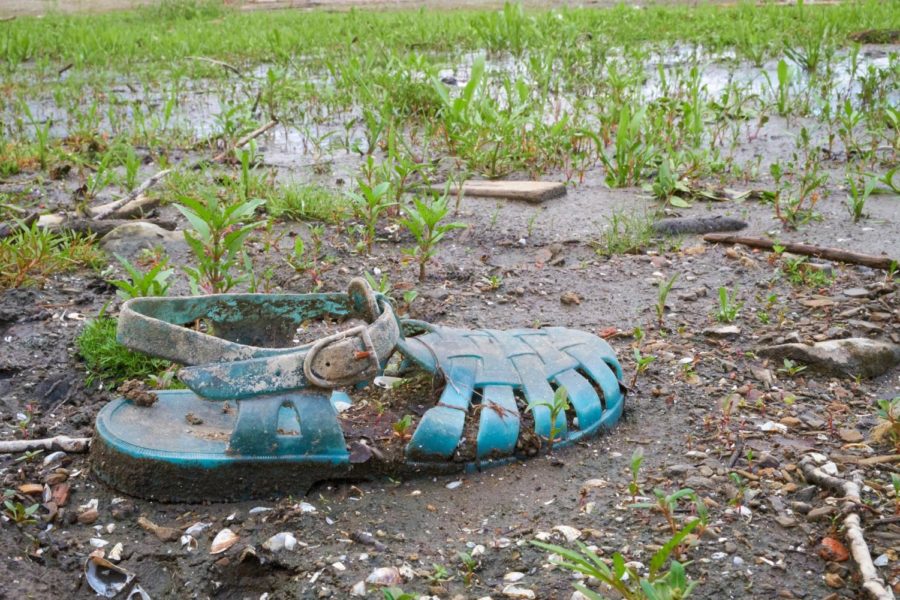The Children Yearn For The Good Old Mines
Going window shopping at SoHo in NYC is one of the best options for a first date if you’re both interested in fashion of course. Unfortuantely one of the most beloved shops at SoHo, H&M, has been closed down and other shops in and around SoHo are also expected to be on the decline. H&M has always been widely known as a brand with terrible business practices because of their use of sweat shops and terrible working conditions. Seeing stores such as H&M close down should be seen as a great win for human rights activists. It should’ve been a sign of seeing better working conditions for all people, but it turned out to be the opposite.
H&M isn’t the only store in SoHo that have low prices as a result of their terrible conditions for workers. Other stores such as Uniqlo and Zara have the same exact problems as H&M, with their treatment of workers. Many people shop in these stores for their incredibly low prices for clothes which seem to be good quality. Many do not realize that most of the clothes sold at these stores are not at all sustainable and many just end up in landfills. All these stores are just made for trendy fashion, instead of something you could keep in your closet for years- and wear year after year.
Trendy fashion, with the combination of quarantine, led to the creation of many new fast fashion brands which have no stores. Therefore, making the prices of their products even cheaper. The main player in trendy fashion is SHEIN, a company that is widely known for their extremely low prices, and also known for their extremely poor quality.
Companies such as SHEIN employ the use of fast fashion, to keep up with the trends for what is, and isn’t, popular with clothes. SHEIN did not invent fast fashion, but in the recent years, it has been dominating the fashion market. Unknown to many, the inventor of fast fashion was through Zara, which opened a store in NYC in late 1900s. Zara and H&M cannot compete with places like SHEIN.
Online stores revolutionized the fashion industry by providing consumers with trendy clothes at low prices. Brands like SHEIN and Temu have become household names, offering thousands of clothing items that are cheap and quickly accessible to consumers. Seems like a good thing, however, the fast fashion industry is not without its drawbacks. It is causing significant harm to the environment and exploiting workers while making fashion worse for people.
SHEIN has been exploiting workers, just so you could get a cheap dress you will only wear once and then throw out. Children as young as high school freshman work day in, and day out, for starvation wages- just so we can have some clothes that we do not even wear more than once. Do you really believe saving a few dollars is worth making thousands of people suffer? Are these clothes worth the pain to the environment and people?
Current data shows people wear clothes, on average, just seven times before throwing them out. This is just a waste of our limited natural resources. These clothes from fast fashion brands are not made to last for more than 2 or 3 washes because of how low quality they are. Many people have taken that, “there is no ethical consumption under capitalism,” with a nihilistic tone of how, ” it doesn’t matter where or how much I shop as they are all bad.”
You are not forced to shop these brands that just exploit people and hurt the environment just for profit. Ethical consumption under capitalism may not be possible, but that does not mean you cannot try to be ethical with the way you use the products you buy. Sustainable fashion is most definitely possible through thrifting if you cannot afford to buy clothes that will last a long time, or buying clothes of higher quality that are from higher end retail stores.
Many of these fast fashion brands such as EMMOIL, YESSTYLE, & Temu are all “drop shipping” brands anyway, that do not even produce their own clothes- but sell them for higher prices anyway. Most products from these stores can be found in places such as Aliexpress for much cheaper than they are on these drop shipping brands.
SHEIN uses a drop-shipping model, to reduce costs and increase profits. This means that the brand does not have to maintain an inventory of products but instead purchases products from suppliers, only when they are ordered by customers. Similarly, Temu, another fast fashion brand, uses a similar drop-shipping model, but its products are manufactured in China. The brand has been accused of exploiting workers by paying them low wages and subjecting them to poor working conditions. Many of the products made by these brands are not even made yet when the purchase has been made. The products are hastily and very poorly made. They will be thrown out.
To make fashion more sustainable and ethical, consumers can opt for slow fashion brands that prioritize sustainability and ethical production. These brands often use high-quality materials and production processes, resulting in clothes that are meant to last. Consumers can also reduce their consumption of fast fashion by buying clothes only when they need them and investing in clothes that are versatile and can be worn in multiple ways.
Fast Fashion is a plague to the fashion industry, and to society in general. Harming the environment, harming workers, and creating trash for cheaper prices is not worth being able to keep up with fashion trends.

